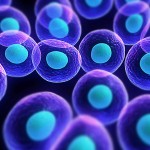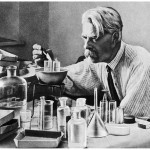Don’t worry, if you have never heard the word inferiomorphism. Inferiomorphism is a combination of inferior (belonging to a lower level) and morphism (looking for a mapping between two objects from different categories).
I have coined the term inferiomorphism by myself to emphasize on one of the greatest mistakes we’ve ever made.
When I was talking about the practical definition of emergence, I’ve noted that the reductionist approach to the world is absolutely against the emergence concept.
Here’s the simplest definition of the reductionist approach:
You can divide the whole into the parts and study them, without losing anything important.
Let me rephrase the above definition:
You can sum up the parts and make a whole new entity, without emerging any new characteristics or properties.
You may think of a brick wall as the first example. We put bricks together and build a wall. Are there any new characteristics emerged? You may say yes. Now we have a wall but we had nothing more than a pile of bricks before. Someone else may say we have nothing new. There is still a pile of bricks with a new structure.
Such a discussion will lead nowhere as it’s a debate over the meaning of the words.
But let’s think about another example which dates back to one century ago when Boltzmann and his colleagues were working on the atomic theory and statistical mechanics. The atomic theory and his mindset was too early for his time. So he depreciated himself through long and strong debates with the contemporary philosophers and the governing paradigm. He finally hanged himself as a result of a depression attack on September 5, 1906. But now we know that his valuable studies can be a vivid example of the emergence concept.
Just imagine the pressure or temperature of a gas. Can you define the temperature or pressure for every single molecule? Sure not. We can’t imagine the concept of pressure and temperature for a single molecule. These characteristics just emerge by the interaction of a large group of molecules with each other.
Pressure and temperature have a fundamental difference with the other physical concepts like mass. As the total mass of a gas is the sum of the masses of its molecules. But pressure and temperature are not sums of the atom properties. Pressure and temperature emerge from the interactions of a large group of atoms and molecules.
From now on, I will frequently use the following terms: agent and superagent.
A superagent is a new entity emerged from the interaction of many similar agents with each other.
So, molecules are agents and the gas is a superagent. Organs are the agent and the humans are superagents. Humans are agents and the society is a superagent. All the firms and government and families are agents and the whole economic system is a superagent.
So the agent and the superagent concepts are completely relative. Every single agent can be a superagent for the lower levels of the hierarchy and vice versa.
The one who has the emergence mindset and a holistic approach to the world, would be able to look for the new characteristics of every superagent and characteristics of the agents in the lower levels of the hierarchy, independently.
Just think about your society and try to describe it in few sentences. Would you call it outgoing? or emotional? or rule conscious?
As you see all of the above-mentioned characteristics are based on our understanding of the humans as agents not the society as a superagent. These descriptions are more similar to the concept of mass, not the concept of temperature.
This is the mistake I would like to call inferiomorphism. Thinking about the superagent with the concepts which are just applicable to the agents.
You can see the result of this misleading mindset in various fields such as religion, science, technology, and philosophy of the digital age.
In the future articles, we will think about the approaches which try to go beyond this limiting mindset. The most complicated challenge would be trying to understand the superagent when we ourselves are the agents.





